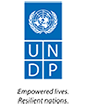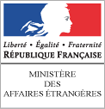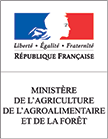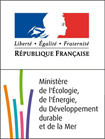
Hi all!
My name is Praiya Uranukul, a Thai citizen who spent parts of her teenage years living in different foreign countries. What I saw outside Thailand hit me hard, and motivates me even now. It was the higher quality of life that I saw in these countries which makes me look at Thailand with more scrutiny, and starting to wonder what difference I can make.
My focus was initially to address environmental issues in rural areas, believing that with a more sustainable lifestyle – people will gradually come to have a better quality of life: better healthcare, education, and support.
Then I realise the true complexity of the issue. What I see is only the surface, underneath it, is layers of primary, secondary, and even tertiary problems feeding on one another. It becomes a vicious cycle that refuses to let its entangled victims free. Seeing the luxury in Bangkok, the capital of Thailand, observers never have the chance to see that the majority of population is struggling to have a good quality of life.
My volunteering experiences in rural areas, as a teacher, as a general assistance, or an interpreter when vulnerable citizens hope to speak up about their situations to foreign researchers, allow me to see how deeply rooted and connected the problems are. Without understanding the nexus, one may never be able to tackle them successfully.
Realising the magnitude of the challenges, I recognized that I did not know enough to join in the efforts to improve livelihoods of those in rural areas, or to make a lasting improvement regarding quality of life in the society. That was when I joined Mahidol University, Thailand in its BSc Environmental Science program, with a minor in International Studies.
Being there, I came to appreciate the importance of a clear scope and a focus. It becomes clear that quality of life cannot be improved along with the efforts for environmental protection; there are political structure, financial mechanisms and societal norms to be investigated and improved upon. Throughout the years, I came to develop a specialisation in certain topics, namely: environmental law and policies, biology, sociology, and social anthropology.
Two internships with environmental NGOs and an MSc in Environmental Policy later, I am now more confident in my ability to contribute, to make a difference to the world. I still need to keep learning, and growing – but I am ready to step forward and dedicate my life working towards the very same goal I have had since the beginning – to improve quality of lives for vulnerable individuals.
I’m glad that Global Landscape Forum provides the opportunity to youths from around the world to speak up. I am confident that the diversity amongst participating individuals will enrich a discussion. The difference in backgrounds reflects the variety in perspectives, a crucial element that broadens the range of a discussion. Such cross-generational and cross-cultural discussion will surely generate stimulating discussions, with no shortage of novel ideas being exchanged over the table.
I am a firm believer in youths’ capabilities: they will bring in drives, enthusiasm, and their determination to reach for what society deems an impossible goal. Having youths actively participating in the Forum means an opportunity for them to demonstrate their abilities as an agent of change to the world, to inspire others to step forward and make their voices heard. I’m proud to have been selected to push youths’ voices forward, and to speak for Thailand in an international Forum.
Praiya Uranukul is one of the 10 young champions who will work on the “ Rights and Tenure” Landscape challenge with Youth program’s partner: CIFOR.
Learn more about the Global Landscapes Forum’s Youth program, meet our 50 youth champions and discover the 5 Landscapes challenges they will take up, in December, in Paris.






































